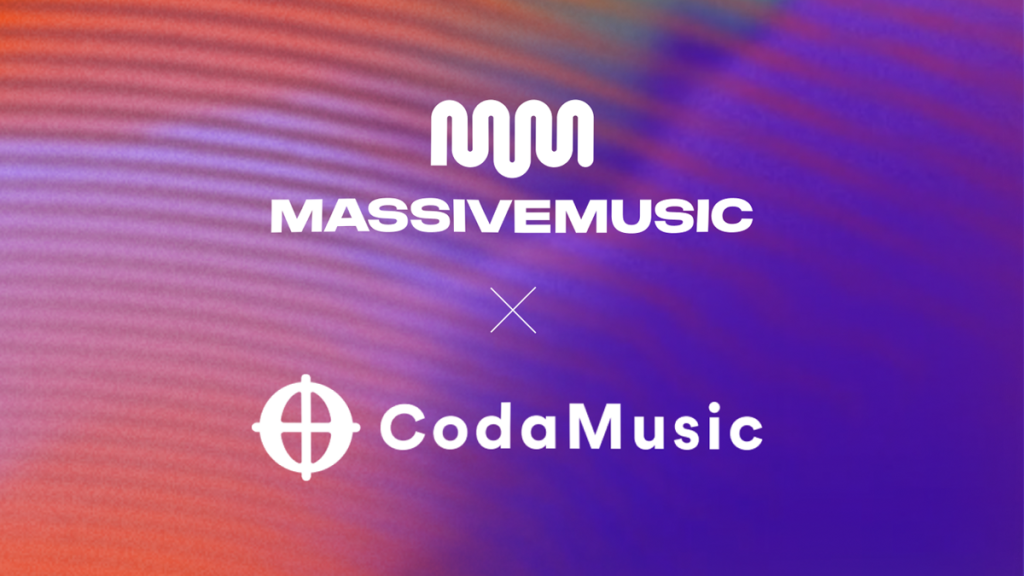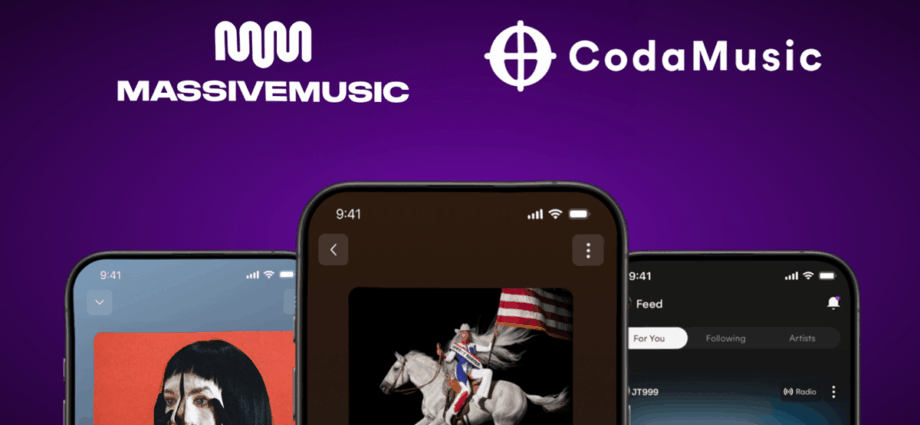
Photo Credit: MassiveMusic and Coda
Coda Music, a new streaming platform aimed at overhauling how independent artists earn revenue from their music has launched. Available now on both the App Store and Google Play, the platform is powered by MassiveMusic, whose licensing, technology, and delivery infrastructure enables access to over 150 million tracks across the globe. MassiveMusic, one of the world’s leading music partners for brands, platforms, and creators, ensures every stream on Coda Music is legal, scalable, and rights-compliant.
This article was created in collaboration with DMN partner Songtradr.
Coda Music is designed to address persistent concerns among independent musicians about the fairness of digital streaming payouts. While traditional streaming giants like Spotify retain a significant portion of listener revenue, or concentrate revenue among the biggest artists, Coda Music stands out for its focus on direct fan-to-artist revenue.
The core innovation—revenue is structured on a direct per-fan basis, rather than the traditional pooled system, ensuring that artists capture a fairer portion of the value generated by their listeners. Early adopters include household names like Eric Clapton and Evanescence, bringing visibility and credibility to this fairer compensation model.
How Coda Music Works
Artists receive custom links that allow them to recruit fans to the platform, earning a percentage of the revenue generated by their specific fan base. This direct fan to artist model can result in payouts up to 100 times higher than what artists typically earn from conventional streaming platforms.
“Our North Star metric as a company is how much income we can drive to the artists that provide the music that all the consumers love,” explains Coda Music Founder and CEO Randy Fusee. “We don’t measure ourselves by our own income or by stream counts. We literally measure our company success by the artist success.”
The platform combines streaming capabilities with social networking features, creating what Fusee describes as “Instagram functionality built in with the streaming service laid on top of the social network.” This approach enables artists to build deeper connections with their fans while maintaining direct access to fan data and communication channels, something that has been largely inaccessible through traditional platforms.
Industry Support & Strategic Vision
The launch of Coda Music is supported by MassiveMusic’s expanded capabilities in licensing and delivery infrastructure, strengthened by the rebrand and unification of several leading music and technology companies — including 7digital, Big Sync Music, Musicube, and Resonance Sonic Branding — under one global brand.
“This unification under MassiveMusic marks a pivotal step in simplifying the complexities of the music industry for our clients,” Songtradr CEO Paul Wiltshire shared recently. “Together, we deliver scalable, tech-driven, and creative sonic solutions that deepen emotional connections, elevate brand perception, and drive measurable business results across every touchpoint.”
Merlin, one of the world’s largest digital rights agencies for independents, is already backing Coda Music with premium music catalog support. That indicates strong sector belief in the platform’s artist-first approach to revenue.
“Independent music is built upon community. In the same fashion, we built Coda Music to foster enhanced connections between independent artists and their fans,” adds Fusee. “This partnership is about redefining what it means to discover, share, and celebrate music in the digital age.”
By focusing on fan-driven compensation and new models for rights monetization, Coda Music may signal a critical turning point for independent artists — a chance to finally participate more equitably in the economics of music streaming. Powered by MassiveMusic’s licensing expertise and delivery infrastructure, the platform ensures every stream is legal, scalable, and rights-compliant.
By involving superfans and the broader music community as financial supporters or co-owners of the music’s success, artists can raise funds in advance for releases or tours, then share in the long-term upside of their growing catalog. This aligns artist incentives with fan community growth and has the potential to increase recurring income — not just one-time royalties.

